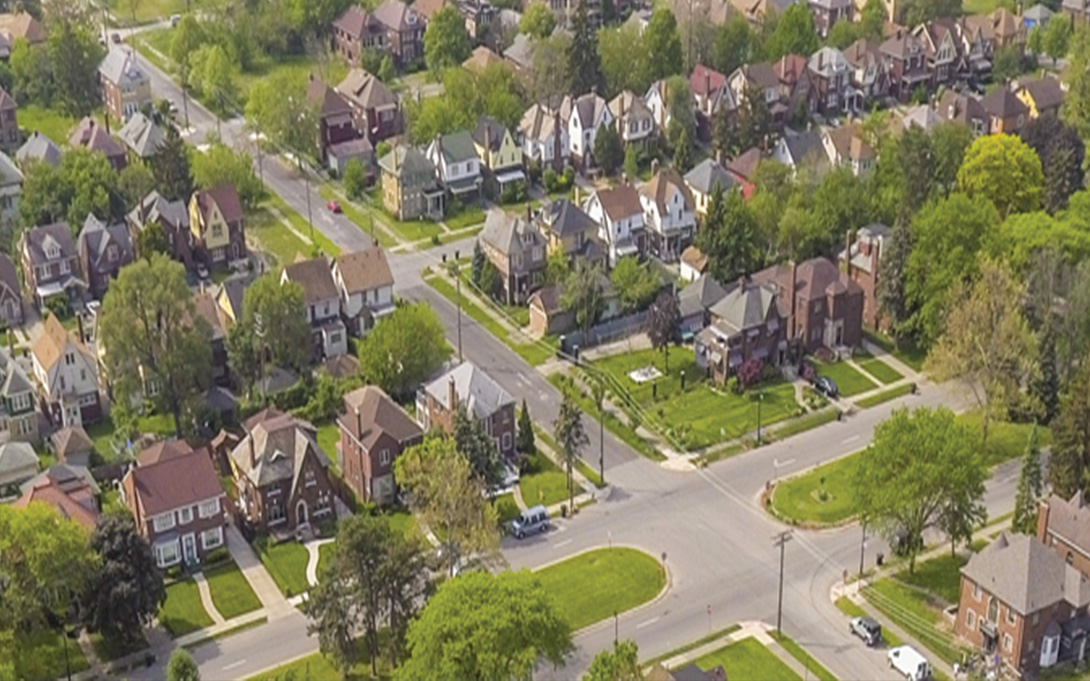
As Detroit children prepare to return to school, widespread and chronic housing instability among city residents poses a threat to students’ ability to perform well academically.
New research from the University of Michigan’s Poverty Solutions and Wayne State University’s Detroit Partnership for Education Equity & Research (PEER) analyzed survey data with responses from more than 1,400 Detroit parents plus in-depth interviews with 20 parents identified as homeless or housing unstable. A policy brief summarizes themes from the parents’ experiences and offers policy recommendations that would promote housing stability and help ensure Detroit children have an equitable opportunity to learn.
"Having a stable place to live is the foundation of academic success and many dimensions of well-being. Unfortunately, many Detroit parents describe a rental environment where short-term leases, poor housing conditions, and few legal protections mean they face a near-constant threat of displacement. This is a problem that schools cannot solve alone," said Jennifer Erb-Downward, director of housing programs and policy initiatives at U-M Poverty Solutions and co-author of the policy brief.
Detroit has one of the highest rates of childhood housing instability in the country, and 11% to 16% of school-aged children experience homelessness. While federal law guarantees students experiencing homelessness the right to an education, schools do not always identify when students lack stable housing, and families are not always aware of their rights. As a result, many students without a stable place to live do not get the extra support and resources they need to participate fully in school. In the 2021-22 school year, 90% of Detroit Public Schools Community District students identified as experiencing homelessness were chronically absent from school.
"It was making it where it was hard for me to get my kids to school, and I almost lost my job because we didn't have a stable home," said one parent interviewed by the researchers. "It was hard because at the hours I would have to be at work, they would have to be at school, so sometimes they would have to miss school and go to work with me."
The researchers found displacement is a significant financial drain on parents with school-aged children in Detroit. In the wake of a forced move, families need to replace lost possessions and pay repeatedly for application fees and security deposits at new rentals. This extends periods of homelessness for Detroit’s children and reduces family resources available to pay for school necessities – such as gas or car repairs needed to reliably attend school.
Parents also described long-lasting repercussions that continue years after housing loss first occurs. Because eviction filings are open records, parents report that rental screening practices exclude them from the majority of stable, quality rental units, even when they meet income requirements and can pay the security deposit.
"City government and the local court system can implement changes that would increase housing stability for Detroit’s children. We have opportunities to turn the tide of chronic housing instability in Detroit," said Sarah Winchell Lenhoff, director of Detroit PEER, associate professor of educational leadership and policy studies at Wayne State, and co-author of the policy brief.
One way to stabilize housing for families with children is to ban evictions during the school year. The researchers pointed to the city of Seattle as an example of implementing that type of targeted eviction moratorium.
All of the parents interviewed said the lack of quality affordable housing is a barrier to housing stability. To address this, the researchers recommend the city enforce its existing rental code and expand Detroit’s affordable housing stock. Plus, the 36th District Court should refuse eviction filings for rental properties that are not up to code. Nine in 10 pandemic-era evictions in Detroit occurred at properties without a Certificate of Compliance (CoC), despite Detroit’s rental code requiring properties to be inspected and receive a CoC prior to rental.
The researchers offered the following additional policy recommendations to promote housing stability in Detroit:
-
Implement rental application fee limits and require application fee refunds to tenants not selected for housing, in order to prevent predatory landlords from exploiting the scarcity and urgency of the rental market
-
Ensure tenants have access to remote eviction proceedings to reduce the number of default judgments against Detroit tenants who do not attend in-person hearings
-
Pass just cause and right to renew legislation, which would require that landlords justify evictions and lease non-renewals with a valid legal cause
This article was written by Lauren Slagter of Poverty Solutions.
